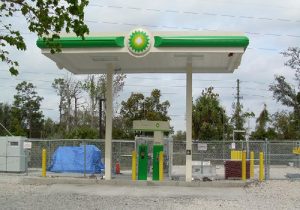- contact@constructtwo.com
- 407-295-9812
- Opening Time : 8:00AM - 5:00PM MON-FRI

COMPLETION DATE:
JULY 1999
PROJECT SIZE:
CAMPUS WIDE
PROJECT COST:
$843,000
PRESENT STATUS:
COMPLETED
Project Overview
The Dr. Phillips Ninth Grade Center and High School Technology Retrofit project was a comprehensive campus-wide technology upgrade initiative completed in July 1999. With a total project cost of $843,000, this construction management undertaking modernized the entire campus network infrastructure to support emerging educational technology needs at the turn of the millennium. The project successfully transformed an aging school facility into a technology-enabled learning environment capable of supporting advanced educational applications and network connectivity throughout both the main high school and ninth grade center buildings.
Project Scope
Complete installation of structural cabling systems throughout the campus
Implementation of fiber optic backbone infrastructure
Deployment of Category 5 horizontal cabling to all classrooms and administrative areas
Cable wire testing and terminations to ensure network integrity
Installation of equipment panels and network distribution frames
Configuration of a complete operating system capable of supporting both fiber optic and Category 5 connectivity
Integration of technology infrastructure with existing building systems
Documentation and training for maintenance personnel
Key Features:
Campus-Wide Fiber Optic Backbone: High-capacity fiber optic cabling connecting all buildings and providing the foundation for future technology growth
Category 5 Horizontal Cabling: State-of-the-art copper cabling infrastructure supporting data speeds up to 100 Mbps to all instructional and administrative areas
Structured Cabling System: Organized, standards-compliant cabling infrastructure with proper cable management and labeling
Centralized Equipment Rooms: Properly designed and climate-controlled spaces for housing network equipment
Scalable Network Architecture: Infrastructure designed to accommodate future technological advancements and increased bandwidth demands
Integrated Technology Solution: Seamless integration of new technology systems with existing building infrastructure
Construction Approach
Phased Implementation: The retrofit was executed in carefully planned phases to minimize disruption to ongoing educational activities, with major work scheduled during school breaks
Coordination with School Operations: Close collaboration with school administration to ensure construction activities did not interfere with critical school functions
Quality Assurance: Rigorous testing protocols for all installed cabling and components, including comprehensive certification of all network drops
Documentation: Detailed as-built documentation provided for all installed systems, including cable pathways, termination points, and equipment locations
Future-Proofing: Implementation approach that considered potential future technology needs, including spare capacity and expansion capabilities
Stakeholder Communication: Regular updates and coordination with school administrators, teachers, and district IT personnel throughout the construction process
Project Challenges
Working in Occupied Facilities
Coordinating construction activities in an active school environment required careful scheduling and minimal disruption strategies
Integration with Legacy Systems
Ensuring new technology infrastructure could support both new and existing educational technology systems
Campus-Wide Scope
Managing the logistics of implementing technology infrastructure across multiple buildings and a large campus footprint
Evolving Technology Standards
Balancing current requirements with emerging technology standards at a time of rapid advancement in networking technology
Physical Infrastructure Limitations
Navigating existing building conditions including limited pathway space, asbestos-containing materials, and structural constraints
Aggressive Timeline
Completing the comprehensive campus-wide retrofit within tight schedule constraints to ensure readiness for the upcoming school year




